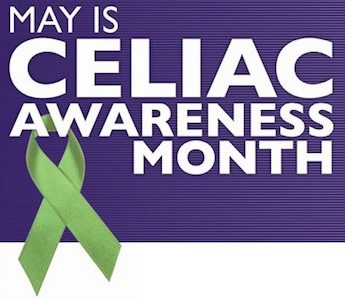It seems ironic that I was making toast when my child’s pediatrician and partner at my practice, called with the news that our daughter has celiac disease.
She had been complaining of stomachaches intermittently for a while. At her annual checkup, Dr. Christian recommended lab work, and we were surprised to learn the outcome. Our daughter was making antibodies against gluten which meant she likely had celiac disease.
Contrary to popular belief, Celiac disease is an inherited autoimmune disorder that affects the small intestines rather than a traditional food allergy. Basically, our daughter’s immune system had started to recognize gluten — a protein found in wheat, barley and rye — as an “enemy” and to produce antibodies to attack it. In doing so, these antibodies cause inflammation and damage the inner lining of the small intestine. This lining is important for absorbing nutrients from your food, so when it is damaged critical nutrients are lost. This can initially result in weight loss, diarrhea, stomachaches, constipation, poor growth along with a whole list of other symptoms. The long-term effects of untreated celiac are more profound and include a higher risk for developing other autoimmune diseases such as type I diabetes, osteoporosis, infertility, and a higher risk for some cancers.
The next step for our daughter was a consultation with a pediatric gastroenterologist and further testing to look for other antibodies involved in celiac. She was also screened for vitamin deficiencies, anemia (low blood count), hormonal disorders (such as thyroid conditions) and had genetic testing, all of which confirmed the diagnosis. Many people also undergo endoscopy with biopsies to confirm the diagnosis.
The good news is the only treatment for celiac disease is a gluten-free diet. There is no surgery, no horrible, invasive procedures and no medication. By eliminating gluten, the immune system stops trying to attack and the inflammation resolves, allowing the gut to heal itself. After this, the intestines can begin to work normally again and absorb the nutrients from food. The bad news is the only treatment for celiac disease is a STRICT gluten-free diet. People with celiac can react to the tiniest amount of gluten in their diet; a piece smaller than a crumb can set off an immune reaction. And unfortunately, celiac disease is life-long. You never outgrow it and there is no cure at this time.
Our gastroenterologist recommended picking a date to go gluten-free for our daughter because she wanted to stress that this commitment has to be 100%. She did not want our daughter thinking that she can have gluten “sometimes” or “for special occasions” or “just a little”.
The day after Labor Day we became a gluten-free household. We decided to make our home gluten-free because it seemed like this would be the easiest way for us to adhere to the diet, prevent cross-contamination and support our daughter. Due to gluten being so prevalent in a typical diet and throughout our kitchen, we bought a few new kitchen items such as a toaster and a pasta strainer. We went through the fridge, freezer and pantry and boxed up all of our gluten containing foods (including 12 boxes of mac and cheese!) and donated it. We replaced our butter tubs, jams, jellies, and peanut butter because these were contaminated with bread crumbs. We checked other household items such as her toothpaste, vitamins, soap and dishwasher detergent.
Six months following her celiac diagnosis and implementing a gluten-free diet, I am happy to report that our daughter is thriving. We still have our ups and downs with the challenge of the diet. However, we know it could be much worse, and we are incredibly grateful that she is feeling better and now growing normally. Our extended family and friends have been amazing in how they have supported us and accommodated our new lifestyle from gluten-free holidays to picking gluten-free restaurants to go out with friends.
Stay tuned for more about gluten-free eating, trips to the grocery store and finding restaurants that can accommodate a truly gluten-free diet… topics that warrant further discussion!
Please feel free to contact me if you have questions about our experiences with celiac.
Written by: Dr. Rachel Elwell

